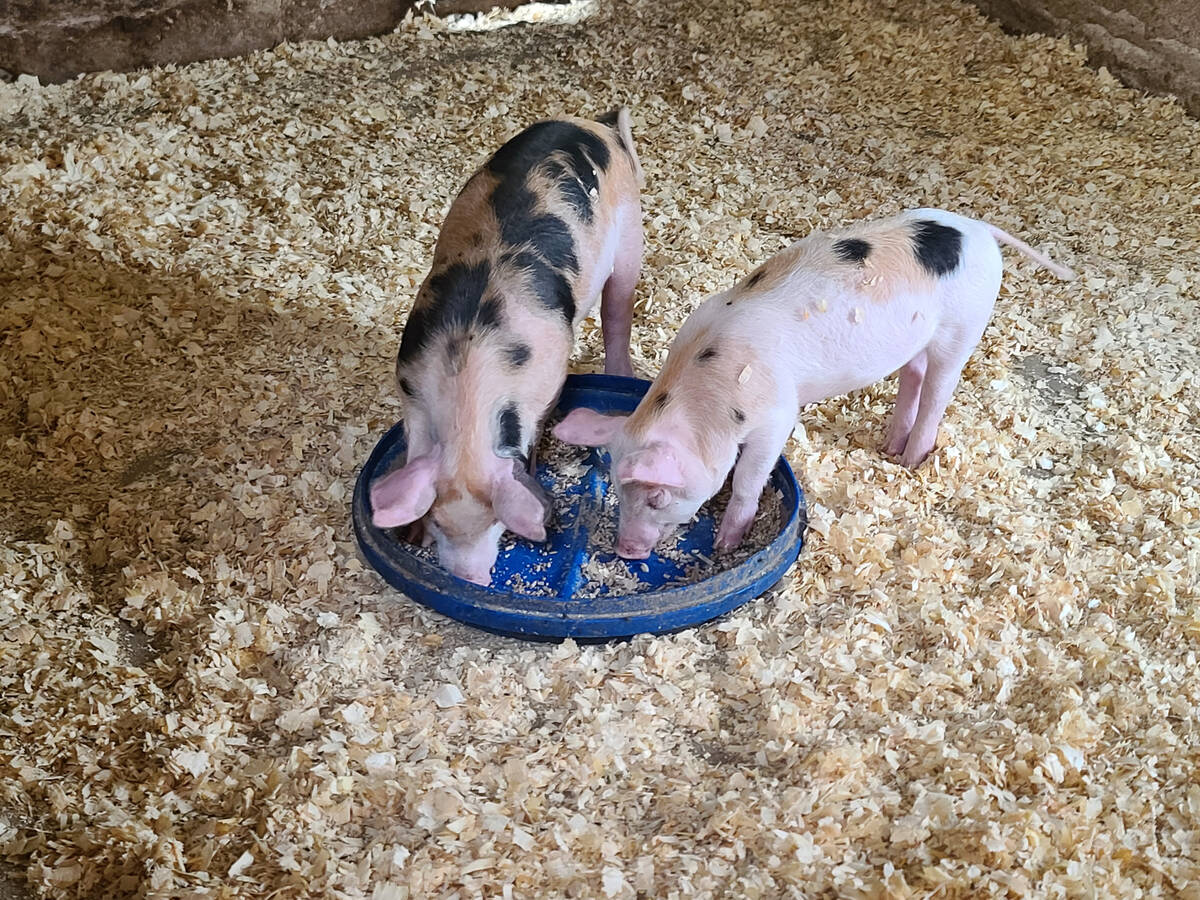Farmers who are attempting to sue Ottawa for $17 billion over the dismantling of the single-desk CWB are once again exploring their options following a Federal Court of Appeal ruling in Ottawa.
The Oct. 15 ruling upheld a previous court decision that rejected most of the claims contained in a $17 billion class action suit that farmers launched against Ottawa and CWB.
The class action was launched in 2012 by four prairie grain growers and is supported by Friends of the Canadian Wheat Board (FCWB).
Stewart Wells, a spokesperson for the class action claimants, said the fight to recover farmer losses is not over, despite the most recent ruling.
Read Also

African swine fever risk tightens feed ingredient trade rules with Taiwan
Plant-based ingredients bound for Canadian livestock feed will have stricter trade rules if the shipments come from Taiwan, following Canadian Food Inspection Agency changes
He said class action plaintiffs still have two options: seek leave to have arguments supporting their $17 billion claim heard by the Supreme Court of Canada or proceed with a reduced class action claim worth hundreds of millions of dollars.
Class action plaintiffs are expected to make a decision within the next week or two, Wells said.
The suit claims that Ottawa’s decision to end CWB’s single-desk marketing monopoly would cost prairie producers $17 billion in lost revenue and confiscated wheat board assets.
The $17 billion claim was partly based on the value of CWB property, including ships, hopper cars and a Winnipeg office building, which were transferred from the farmer-directed wheat board to the new post-monopoly CWB as of Aug. 1, 2012.
Also included in the class action claim were hundred of millions of dollars worth of pool revenues which, according to plaintiffs, should have been paid to farmers but were instead retained by the CWB to bolster an internal contingency fund and cover extraordinary costs such as employee severance packages, pension liabilities and other transition-related expenses.
In a court judgment last December, federal judge Daniele Tremblay-Lamer rejected most of the farmer claims relating to confiscated property, suggesting federal legislation that ended CWB’s single-desk “(did) not divest the plaintiffs of property nor (did) it divest the CWB of its property since the CWB is continued and it continues to own the contingency fund along with its other assets.”
However, Tremblay Lamar also ruled that a reduced class action suit should be allowed to go forward, based on the fact that the government and CWB may have deprived prairie farmers of some pool payouts during the 2011-12 crop year and may not have established “a reasonable price for grain remaining unsold after the 2011-12 pool period.”
Class action plaintiffs initiated an appeal of Tremblay Lamar’s decision early this year.
It was that appeal that was rejected in the Oct. 15 decision.
A secondary appeal was also dismissed. It was launched by the federal government and sought to have all claims against the federal government and CWB dismissed.
Andres Bruun, a Winnipeg lawyer who represents the class action claimants, said the Oct. 15 ruling does not mean efforts to recover farmer losses have hit a brick wall.
Bruun said claimants must now decide how they wish to proceed, either with a reduced claim or with an attempt to have their arguments heard by the Supreme Court.
“We have a very clear green light to proceed with the class action in respect to monies that were improperly withheld from farmers in the 2011-12 crop year,” Bruun said.
“Those monies were withheld to cover severance pay, pension expenses and numerous other expenses. Those (monies) were not paid out to producers as they should have been.”
A reduced claim by class action participants would include $125 million that was directed from pool accounts into the CWB contingency fund during the 2011-12 crop year.
Bruun said a reduced claim would likely be valued in the “low hundreds of millions of dollars.”
He added that the exact value of a reduced claim could be difficult to establish, given that the CWB’s financial results have not made public since July 31, 2012.
“The CWB did not issue a proper annual report or did not make public a proper annual report for 2012-13 … so there are a number of things (involved in our claim) that we have not been able to put a dollar value on,” Bruun said.
“That’s one of the things we’re asking for is an accounting … a court order directing that the accounts of the CWB be presented publicly.”
The court’s Oct. 15 decision comes at a sensitive time for Ottawa and CWB.
Sources in the grain industry have said the CWB privatization process is underway and that a shortlist of potential buyers or corporate partners is likely to be established before the end of the year.
It is widely believed CWB is seeking to merge or partner with a corporate investor that would commit a pool of investment capital.
That capital would be combined with existing CWB assets and used to expand the western Canadian elevator network already being pieced together by CWB executives.
Outstanding legal claims against the CWB could hinder the privatization process or at least emerge as an unwanted fly in the ointment.
Last week, officials with Farmers of North America reiterated claims that the CWB privatization process has been fast-tracked and that high-level, behind-the-scenes decisions related to CWB privatization are imminent.
FNA officials said they have reason to believe that multinational grain companies are lining up to explore potential investment and partnership opportunities with CWB.
CWB has declined to comment.
FNA is attempting to raise as much as $320 million in farmer-supplied capital in hopes of acquiring a controlling stake in the former wheat board.
FNA officials told reporters this week that organization president Jim Mann was in Ottawa attempting to delay the CWB privatization process so that FNA would have more time to raise farmer capital and formulate a more complete offer to partner with CWB or acquire its assets on behalf of prairie farmers.















